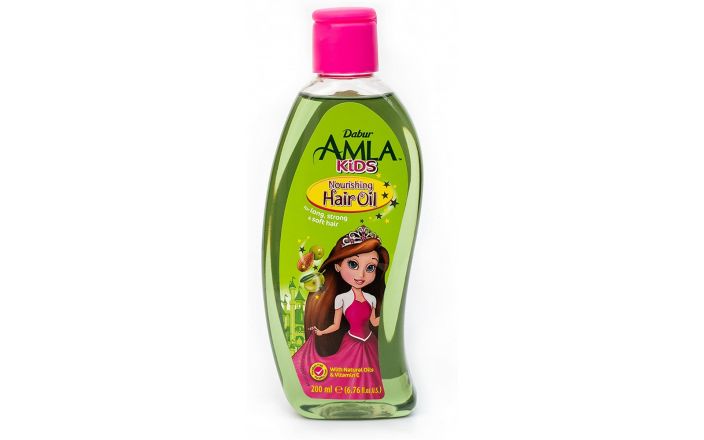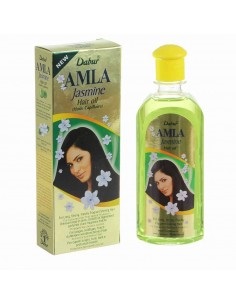Having rich, healthy hair is a reflection of our overall well-being and is more than just about looks. What we eat, how we live, and the way we take care of our hair all play a vital role in its health. Unfortunately, many people fall victim to common misconceptions and mistakes that harm their hair, leading to issues like breakage, dullness, and hair loss. It’s crucial to educate ourselves on good hair care practices and make wise choices to keep our hair healthy. By knowing the factors that impact hair health, we can proactively maintain strong and vibrant hair.
Errors to steer clear of for healthy hair
- Insufficient and excessive washing: Maintaining healthy hair requires striking the correct balance when it comes to washing frequency. Although maintaining cleanliness is crucial, excessive washing can deplete the scalp of its natural oils, causing it to become dry and irritated and possibly producing more oil in an attempt to make up for it. Conversely, underwashing can lead to dandruff, congested follicles, and product accumulation on the scalp. It’s critical to pay attention to the needs of your hair and scalp and modify the frequency of your washings accordingly. For most hair types, washing every two to three days is a decent balance, although this might change based on things like activity level, hair texture, and environmental influences.
- Misuse of heat styling: The health of your hair can suffer greatly from overuse of hot styling appliances like blow dryers, curling wands, and flat irons. The intense heat can harm the cuticle of the hair, causing it to become dry, break, and lose its sheen. Limit the use of hot tools and, whenever possible, opt for heat-free styling techniques to reduce heat damage. Use a high-quality heat protectant spray or serum whenever heat styling is required to put your hair in a protective layer away from the heat source and lower the chance of damage.


- Disregarding a healthy diet: For our hair to remain vibrant and healthy, it requires a range of nutrients. To encourage robust, resilient hair development, it is imperative to consume protein, vitamins (especially A, C, D, and E), minerals (such as biotin, iron, and zinc), and omega-3 fatty acids. Hair thinning, dullness, and even hair loss can be caused by a diet deficient in essential minerals. Include a wide variety of nutrient-rich foods in your diet, such as lean proteins, fruits, vegetables, whole grains, nuts, seeds, and fatty fish like salmon, to make sure your hair receives the nutrition it needs.
- Harsh Hair Products: Conventional hair care products contain ingredients like silicones, parabens, and sulfates that can strip hair of its natural oils, causing it to become dry and brittle. Steer clear of goods that contain these dangerous ingredients. Instead, choose natural hair care products made with nutritious ingredients such as botanical extracts, essential oils, and plant oils. These non-damaging substitutes successfully hydrate, clean, and shield hair.
- Avoid Pulling Too Much and Wearing Tight Hairstyles: Even while sleek ponytails, braids, and buns are popular right now, your hair might suffer greatly if you wear them too regularly or too tightly. Traction alopecia is a disorder where excessive stress is placed on the scalp and hair follicles as a result of tight hairstyles. This strain, particularly at the temples and hairline, can cause thinning, breaking, or even permanent hair loss.
Ten hair myths you should be aware of
- 1. Pruning to Promote Quicker Growth: It’s a common misconception that cutting your hair will accelerate its growth. Not at the ends, but at the scalp, hair grows. Simply put, trimming encourages healthier-looking hair by preventing broken ends from moving up the hair shaft.
- 2. Daily shampooing: Although it’s commonly believed that bathing your hair every day is essential for clean hair, doing so might deplete your scalp’s natural oils, causing dryness and irritation. Your lifestyle and hair type should determine how often you shampoo.
- 3. Hair is always damaged by color treatments: Although coloring your hair frequently might weaken it, proper materials and current techniques help to limit harm. To reduce the possibility of injury, choose professional treatments and nourishing aftercare items.
- 4. Natural hair masks ensure immediate outcomes: Although natural therapies have advantages, they might not show effects right away. Over time, the finest results are achieved when a holistic approach to hair care is combined with consistent application.
- 5. Hair brushing: Use 100 strokes per day to get a shine: Overbrushing can harm hair strands by stretching and breaking them. To detangle and style, brushing should be done lightly and as needed, not for a set number of strokes.
- 6. Hair is thicker after shaving: Hair growth rate and thickness are unaffected by shaving. The blunt edges may give the impression that it is thicker at first; however, this is an aesthetic effect.
- 7. Not using conditioner helps keep things greasy: Whether or not conditioner seems greasy, it is necessary to keep hair healthy. Shampoo problems and dry, brittle hair might result from skipping conditioner.
- T8. ightly tying your hair helps reduce frizz: Frizz, traction alopecia and breakage can result from hair follicle strain brought on by tight haircuts. Choose looser haircuts to reduce damage and encourage healthy hair.
- 9. Pulling off a single gray hair causes more: A single gray hair won’t grow back in its place if it is plucked. On the other hand, overplucking can harm the hair follicle and cause irreversible hair loss.
- 10. Investing in high-end products ensures superior outcomes: Although certain high-end goods could provide pleasant experiences and high-quality components, efficacy isn’t always correlated with price. There are several reasonably priced hair care products available that produce top-notch outcomes.
The Role of Scalp Health
The basis for good hair development is a healthy scalp. Healthy scalps are vital for healthy, vivid hair because they supply the nourishment and support that hair follicles need to grow and thrive. In addition to fostering the best conditions for hair growth, a healthy and nourished scalp helps avoid problems like dandruff, irritation, and inflammation.
Procedures for upkeep Incorporate scalp-friendly activities into your hair care regimen to maintain a healthy scalp. Frequent scalp massages encourage blood flow to the hair follicles, which supports healthy scalp development. By removing dead skin cells, product buildup, and excess oil from the scalp, exfoliation improves nutrient absorption and promotes healthier hair development. Furthermore, utilizing mild, sulfate-free shampoos and staying away from harsh chemical treatments will help keep your scalp happy and healthy.
Lifestyle habits for healthy hair
- The significance of getting enough sleep: A good night’s sleep is crucial for maintaining general health and well-being, which includes healthy hair. The body, including the hair follicles rejuvenates, and repairs itself as we sleep. The hair growth cycle can be upset by sleep deprivation, which can result in problems like hair loss and shedding. Aim for 7 to 9 hours of quality sleep every night to promote the healthiest possible hair and general energy.
- Creating a schedule: Create a calming nighttime routine that tells your body it’s time to wind down and get ready for sleep in order to enhance the quality of your sleep. This could involve doing things like reading a book, listening to relaxing music, taking a warm bath, or engaging in mindfulness or meditation. In the hour before bed, stay away from screens and stimulating activities since these might disrupt your body’s normal sleep-wake cycle and make it more difficult to fall asleep.
Stress management
Stress and hair loss are related. Prolonged stress can have a negative impact on the health of your hair, resulting in problems including hair loss, shedding, and thinning. Stress causes our body to release more cortisol, a hormone that can interfere with the growth cycle of hair and cause early shedding. Stress can also tighten the muscles in the scalp, which limits blood supply to the hair follicles and prevents normal hair growth.
Methods for lessening the effects of stress include stress-relieving practices in your regular routine to reduce the negative effects of stress on your hair. This could involve engaging in activities like yoga, deep breathing techniques, mindfulness meditation, or spending time in nature. Regular physical activity can also aid in lowering stress levels and enhancing general wellbeing. Furthermore, give top priority to self-care pursuits that make you happy and relaxed, like reading a book, having a bubble bath, or spending time with close friends and family. You can preserve your general health and vigor, as well as encourage healthy hair development, by practicing appropriate stress management.
In summary
Unlocking your hair’s full potential is simpler than you think. By sidestepping common pitfalls and debunking myths, you pave the way for healthier, more vibrant hair. Embrace a holistic approach to hair care, focusing on gentle treatment and internal nourishment. Remember, healthy hair reflects a healthy lifestyle. Prioritize self-care, nutrition, and stress management to maintain strong, beautiful hair for life.

